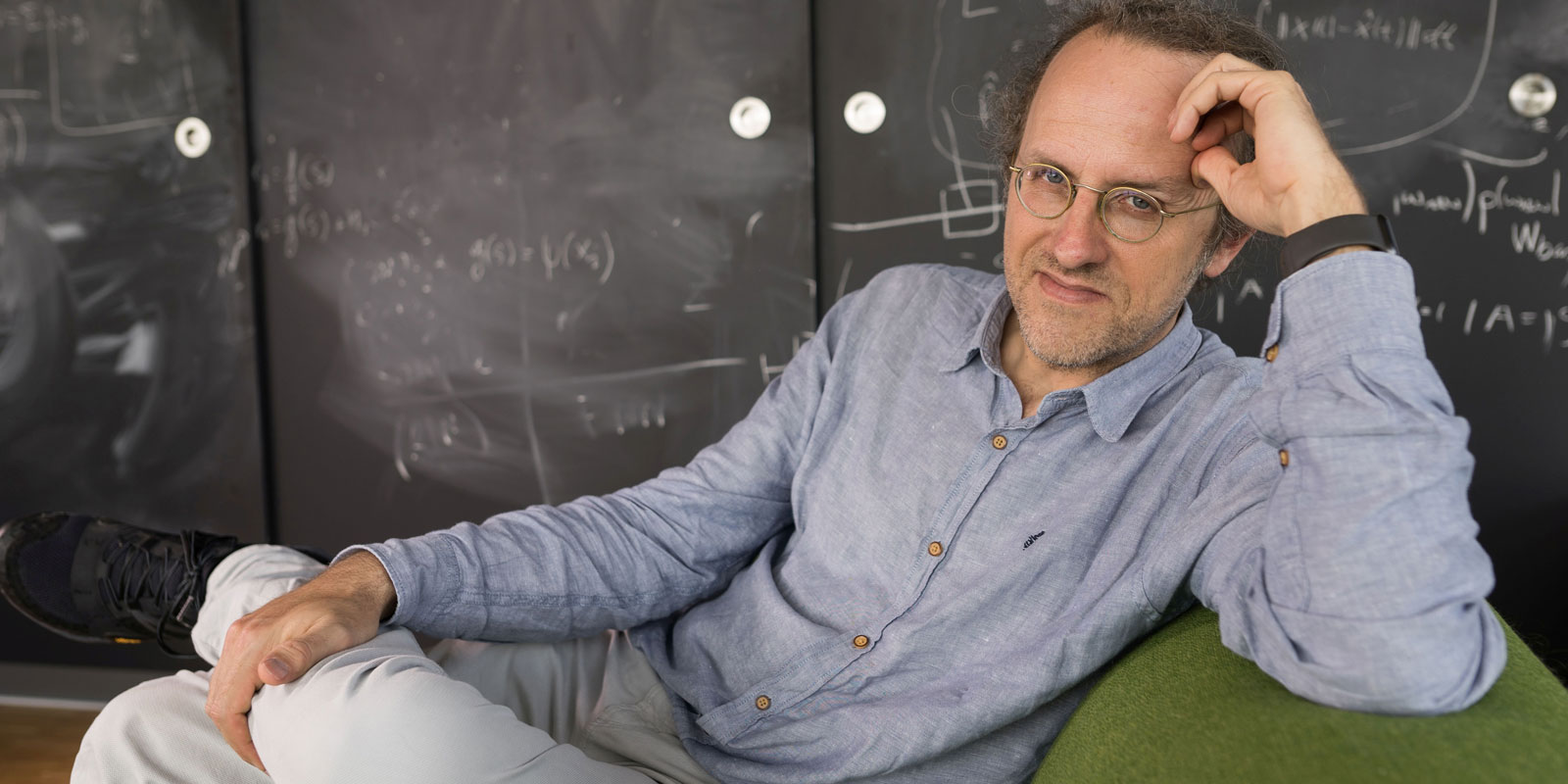Körber Prize goes to Bernhard Schölkopf
Bernhard Schölkopf, Director of the Max Planck Institute for Intelligent Systems and Affiliated Professor at ETH Zurich, today received the Körber European Science Prize for his research in the field of machine learning and artificial intelligence.
The Körber European Science Prize 2019 was presented this morning to Bernhard Schölkopf in the Great Festival Hall of Hamburg City Hall. Endowed with one million euros, the Körber Prize is one of the highest honours in the sciences; one indication of this is that six previous prizewinners have gone on to win the Nobel prize as well.
The Körber Prize recognises pioneering research approaches with strong application potential undertaken by researchers who are active in Europe. Prior to this year, the last ETH Zurich member to win the Körber Prize was materials scientist Nicola Spaldin in 2015.
Pioneer of machine learning
German physicist, mathematician and computer scientist Bernhard Schölkopf (born in 1968) is receiving the Körber European Science Prize for his major contributions to the development of artificial intelligence (AI). His research field is machine learning.
Schölkopf and his team develop algorithms – meaning mathematical processes and program instructions – that enable computer programs to react flexibly to situations. These algorithms are what give self-driving cars, for example, the ability to learn from experience and adapt to new conditions whenever they have to pull into a parking space or move over uneven terrain.
Areas of application for Schölkopf’s methods and programs range from biology and medicine to economics and the social sciences. According to the research journal Science, he is one of the ten most influential computer scientists in the world.
Sophisticated algorithms
Schölkopf achieved global renown with specialised machine learning processes, known as support vector machines (SVM). These are sophisticated algorithms with which computers can quickly and accurately carry out highly complex AI calculations. SVMs are similar to neural networks modelled on the brain and are based on solid mathematical principles.
The first SVM systems in the 1990s could recognise handwritten numbers on items of mail almost as well as people could. Because of their systematic mathematical approach, they gave computer science a clear thrust forward. At the moment, Schölkopf’s team at MPI Tübingen is researching algorithms that can also infer causal relationships from data.
In 2011, Bernhard Schölkopf was one of the founding directors of the Max Planck Institute for Intelligent Systems in Tübingen. He has been Affiliated Professor of Empirical Inference at ETH Zurich since December 2018. Since 2015, he has been sharing directorship responsibilities at the external page Max Planck ETH Center for Learning Systems with Thomas Hofmann, Professor at the ETH Zurich Institute for Machine Learning. This collaboration aims to apply theoretical principles of learning to real machines and to train the next generation of researchers in this field.


Comments
No comments yet